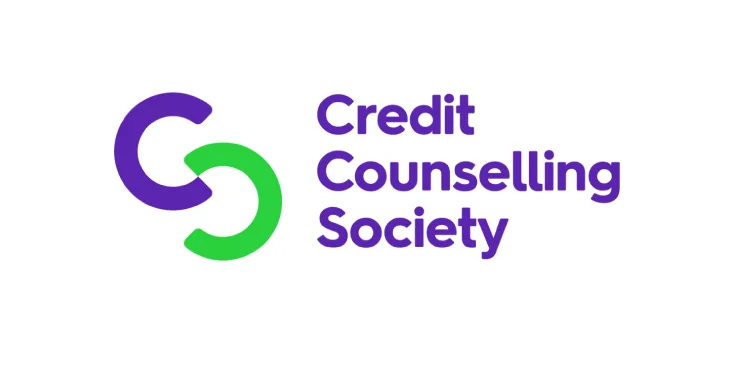
People who take out debt consolidation loans always improve their chances of getting out of debt.
Keeping track of all your bills and debts can be difficult. Maybe you’ve missed a payment or two as a result. Consolidating your debts can simplify your finances by combining all your payments into one. You will usually end up paying less interest as well.
What you should know
“After reviewing my finances, I couldn’t believe the interest I was paying on some of my debts. My bank suggested I apply for a consolidation loan. Fortunately I have a decent credit score, so I was offered a loan on pretty good terms. Now I’m saving over $100 in interest each month, and I only have to worry about making a single payment."
– Charlotte, Whistler, BC

Consolidating your debts means rolling them all into a single debt you make payments on monthly. This can be done in a number of ways, such as through a consolidation loan, a line of credit, or a debt repayment plan.
Usually, the interest rate you pay after consolidating your debts is lower than the average interest rate on your multiple debts.
Making a single monthly payment is also simpler. Instead of having multiple credit card bills, a bank loan, and a line of credit (for example), you make a single monthly payment. This makes it less likely you’ll forget to make a payment or make a payment late — either of which can cause a big drop in your credit score.
A consolidation loan is a single loan used to pay off multiple debts. A financial institution lends you enough to cover your various debts. They call all your creditors and settle up. Now you only owe the one lender. You make monthly payments until the consolidation loan is paid off.
Consolidation loans can have lower interest rates than most consumer loans. So this option is especially attractive if you have many loans with high interest rates.
What debts can be consolidated
Not all debts are eligible for consolidation. For example, a mortgage isn’t. It’s considered a secured debt (the security is the home). Usually only your “unsecured” debts can be lumped into a consolidation loan. With these debts your creditor does not have a security interest that protects them in case you don’t pay. For example, the following debts are usually unsecured:
credit card debt
consumer loans
public utility debts
You may be asked to put up security
Most lenders cap the amount they’ll lend you at about 10% of your net worth — unless you provide security. Security is something the borrower offers the lender to back up the promise to repay. The actual physical thing being offered is called collateral. If you don’t pay back the loan, the lender can take the collateral and sell it.
Applying for a consolidation loan
Many financial institutions offer consolidation loans. To qualify for one, you’ll usually be asked to provide your income and credit score. The lender will want to be sure you’ll be able to make your monthly payments. Your credit score tells the lender how trustworthy you are based on your debt-paying history.
The lender may ask you to cancel credit accounts you have with stores, businesses, or credit card issuers. This is to prevent you from taking on more debt during the term of the consolidation loan.
Shop around
Before you take out a consolidation loan, do some shopping around. Financial institutions offer different interest rates and payment schemes. Make sure you understand how much the loan will cost you in total before agreeing. Credit counsellors can help you through the process of consolidating your debts.
A second mortgage is a mortgage taken out on a property that already has a mortgage on it. If a lender thinks you have sufficient equity in your home, they might lend you the money to pay off your debts in exchange for taking a second mortgage on your home.
For example, say the lender thinks your home is worth $600,000. If you have a $400,000 mortgage, you have $200,000 in equity. If your various debts total, say, $50,000, the lender might lend you the money to pay your debts, and take a second mortgage on your home.
The result is very much like a consolidation loan (see above), but with an extra element: the lender gets security for their loan in the form of the second mortgage.
Under the law in Canada, a bank can’t make a loan and take a second mortgage if the total amount mortgaged is over 80% of the value of a property. A second mortgage (at least from a bank) will only work as an option to consolidate debts if you have sufficient equity in your home.
If you’re considering a second mortgage, see our guidance on getting a mortgage for what to watch for.
Consider combining mortgage payments
One option is to see if the lender who holds the mortgage on your home will grant a second mortgage and combine the payments for both mortgages. Usually, this will allow you to get a better interest rate when the mortgages need to be renewed.
Opening a line of credit for the total amount you owe is another way to consolidate your debts. A line of credit allows you to borrow funds from an account up to a certain credit limit. You only pay interest on the borrowed funds.
Lines of credit can have lower interest rates than most loans. The interest rate on a line of credit is typically based on the prime rate. The rate is set at a number of percentage points above the prime rate, depending on your credit history and whether the line of credit is secured by collateral.
A line of credit offers some flexibility when it comes to repayment. As long as you continue to make the minimum payments, you can pay it off as slowly or as quickly as you want.
Pay more than the monthly minimum
When you can afford it, pay more than the monthly minimum on your line of credit. While it may seem like you’re saving money by paying the minimum, you’ll end up paying more in interest over the term.
A debt repayment plan (also called a debt management plan) is another way to consolidate your monthly debt payments into one payment. You set up an account with a credit counselling agency. You deposit a monthly amount into the account. The credit counsellor uses this amount to pay your creditors until your debts are paid.
To develop the debt repayment plan, the credit counsellor will contact your creditors on your behalf and propose a payment schedule based on your ability to pay. Most creditors will substantially reduce the interest rate on your debt under a debt repayment plan. Usually, your monthly payments will be reduced and extended over a longer period.
Under a debt repayment plan, your debts must be fully paid within a certain period of time. There’s no penalty for paying off your plan early.
The impact on your credit score
Starting a debt repayment plan will lower your credit score. There’ll be a note on your credit report that you're making regular payments on your debts through a special arrangement with a credit counsellor. Your lower credit score will last for two years after you complete the debt repayment plan.
If you can’t qualify for a consolidation loan, another option to consolidate your debts is to use credit cards. Ask your bank if you can consolidate all your credit card balances onto one low interest rate card. Then, pay off this card as quickly as you can. It will be helpful to come up with a payment scheme to figure out the maximum you can pay each month.
Keep an eye out for promotional rates
Most banks periodically offer credit cards with promotional rates. This may be a good opportunity to consolidate your credit card debt. However, make sure you can afford to pay off the card before the promotional rate expires.
Work out the problem
Your first step in consolidating your debts should be to list all the debts you want to consolidate. Most consumer debts, such as credit card bills and utility payments, can be consolidated. However, some types of debt cannot be included in (for example) a consolidation loan. See above, under “What you should know.”
There are a number of ways to consolidate your debts (see above, under “What you should know”). Weigh the pros and cons of those that are available to you.
If you own your home (and you have sufficient equity in it), using a second mortgage to consolidate your debts can be a good option. Mortgages usually have low interest rates and can be paid off over many years.
If you have a solid credit score and a steady income, opening a line of credit can be a good option. You might be offered a low interest rate, particularly if you’re able to provide security to the lender.
A debt repayment plan can be a good option, as a credit counsellor might be able to negotiate a longer time to pay with your creditors.
A credit counsellor can help
If you’re not sure which approach to consolidating your debts is the best option for you, consider seeing a non-profit credit counselling agency. They can help you weigh the various options, and help you figure out if consolidating your debts makes sense in your situation.
With any of the debt consolidation options, you’ll be presented with an agreement. Whether it’s a loan agreement, a second mortgage, or a debt repayment plan, review the agreement carefully before signing it. Ask your advisor or lender to explain any terms or conditions you don’t understand. Make sure you know the total amount the arrangement will cost you.
For every lender you visit your credit score takes a hit
If you think the interest rate you’re being offered is too high, consider looking elsewhere. However, each lender you approach will pull a copy of your credit report. Your credit score will take a hit each time. (See our guidance on how credit reports work.) Some credit counsellors suggest stopping after three lenders if you’re shopping around.
Whichever consolidation option you choose, it’s important to keep to a payment schedule. Review your budget and figure out how much you can afford to pay down each month. It’s always best to repay any loan as quickly as you can. Otherwise, you’re paying more in interest in the long run.
For debt consolidation to work, you should also follow a spending plan. Although you’ll usually be saving money after you consolidate, you shouldn’t see this as an excuse to spend more. Keep track of your expenses and watch non-essential spending.
Who can help

Credit Counselling Society of BC
A non-profit society that helps people better manage their money and debt.

